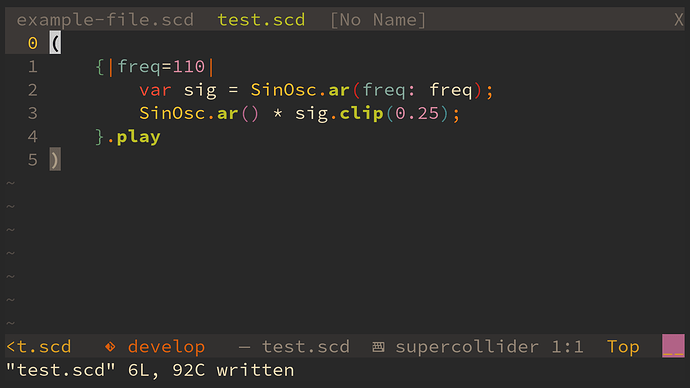Hello everyone
I am happy to announce a little pet project: I have been mapping the sclang grammar to be used with the awesome tree-sitter code parser. Tree-sitter allows for advanced syntax highlighting and very precise and scope aware code analysis. For now it is mostly used to create very nice code highlighting but because it is a very precise node tree of the document it could potentially have more usecases (such as very precise syntax errors that are generated as you type). One of the things that I like the most about tree-sitter is that it reparses each node as you type (and not the whole document) which gives you immediate visual information about the code you are typing.
The superCollider grammar for tree-sitter is here:
And more info on tree-sitter:
tree-sitter.github.io/



 ), and these file types handle syntax highlighting in one and only one way. Implicitly, then, the IDE discourages live coding dialects. I’m quite sure this is not the message we want to send, but it is the reality now. My live coding dialect looks hideous in the IDE, and there is currently nothing I can do about it except switch to emacs.
), and these file types handle syntax highlighting in one and only one way. Implicitly, then, the IDE discourages live coding dialects. I’m quite sure this is not the message we want to send, but it is the reality now. My live coding dialect looks hideous in the IDE, and there is currently nothing I can do about it except switch to emacs.